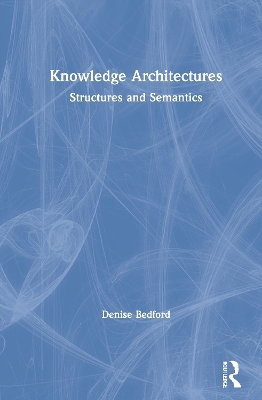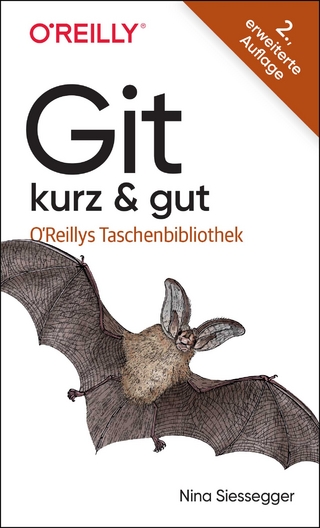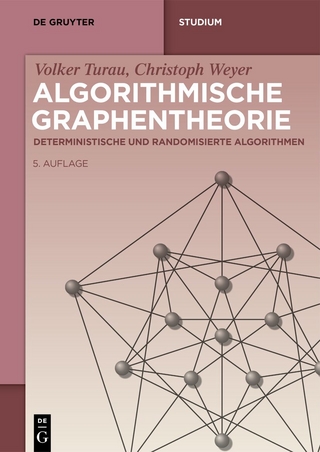
Knowledge Architectures
Routledge (Verlag)
978-0-367-21943-7 (ISBN)
Knowledge Architectures reviews traditional approaches to managing information and explains why they need to adapt to support 21st-century information management and discovery.
Exploring the rapidly changing environment in which information is being managed and accessed, the book considers how to use knowledge architectures, the basic structures and designs that underlie all of the parts of an effective information system, to best advantage. Drawing on 40 years of work with a variety of organizations, Bedford explains that failure to understand the structure behind any given system can be the difference between an effective solution and a significant and costly failure. Demonstrating that the information user environment has shifted significantly in the past 20 years, the book explains that end users now expect designs and behaviors that are much closer to the way they think, work, and act. Acknowledging how important it is that those responsible for developing an information or knowledge management system understand knowledge structures, the book goes beyond a traditional library science perspective and uses case studies to help translate the abstract and theoretical to the practical and concrete.
Explaining the structures in a simple and intuitive way and providing examples that clearly illustrate the challenges faced by a range of different organizations, Knowledge Architectures is essential reading for those studying and working in library and information science, data science, systems development, database design, and search system architecture and engineering.
Denise Bedford is currently an adjunct professor, Georgetown University’s Communication Culture and Technology program, USA; Visiting Scholar at the University of Coventry, UK, and Distinguished Practitioner/Virtual Fellow with the U.S. Department of State. She currently serves as Associate Editor of the Journal of Knowledge Management. Her educational background includes a B.A. triple major in intellectual history, Russian language, and German language; an M.A. in Russian and East European history; an M.S. in information science; and a Ph.D. in Information Science with focus on systems analysis and design, and economics of information.
List of figures; List of tables; Preface; Acknowledgements; Section 1: Context and Purpose of Knowledge Architecture; 1 Making the Case for Knowledge Architecture; 2 The Landscape of Knowledge Assets; 3 Knowledge Architecture and Design; 4 Knowledge Architecture Reference Model; 5 Knowledge Architecture Segments; Section two: Designing for Availability; 6 Functional Architecture for Knowledge Object Models; 7 Functional Architecture for Knowledge Encoding, Formatting and Packaging; 8 Functional Architecture for Knowledge Identification and Distinction; 9 Functional Architecture for Knowledge Asset Disposition and Destruction; 10 Functional Architecture for Knowledge Preservation and Conservation; Section 3: Designing to Accessibility; 11 Functional Architecture for Knowledge Seeking and Discovery; 12 Functional Architecture for Knowledge Search; 13 Functional Architecture for Knowledge Categorization; 14 Functional Architecture for Knowledge Indexing and Keywording; 15 Functional Architecture for Knowledge Semantics; 16 Functional Architecture for Knowledge Abstracting and Surrogation; Section 4: Designing for Consummability; 17 Functional Architecture for Knowledge Augmentation, Derivation and Synthesis; 18 Functional Architecture to Manage Risk and Harm; 19 Functional Architecture for Knowledge Authentication and Provenance; 20 Functional Architecture for Securing Knowledge Assets; 21 Functional Architectures for Authorizing and Privileging Knowledge Assets; Section 5: Designing the Big Picture; 22 Functional Architecture for Knowledge Asset Metadata and Metainformation; 23 The Whole Knowledge Architecture – Pulling it all Together; Index
| Erscheinungsdatum | 15.01.2021 |
|---|---|
| Zusatzinfo | 22 Tables, black and white; 70 Line drawings, black and white; 20 Halftones, black and white; 90 Illustrations, black and white |
| Verlagsort | London |
| Sprache | englisch |
| Maße | 156 x 234 mm |
| Gewicht | 453 g |
| Themenwelt | Mathematik / Informatik ► Informatik ► Software Entwicklung |
| Mathematik / Informatik ► Informatik ► Theorie / Studium | |
| Sozialwissenschaften ► Kommunikation / Medien ► Buchhandel / Bibliothekswesen | |
| Technik ► Elektrotechnik / Energietechnik | |
| Technik ► Umwelttechnik / Biotechnologie | |
| ISBN-10 | 0-367-21943-3 / 0367219433 |
| ISBN-13 | 978-0-367-21943-7 / 9780367219437 |
| Zustand | Neuware |
| Haben Sie eine Frage zum Produkt? |
aus dem Bereich


